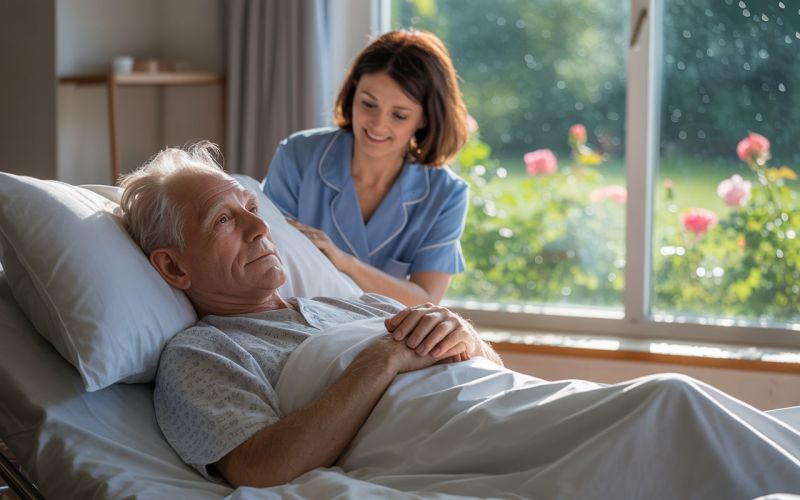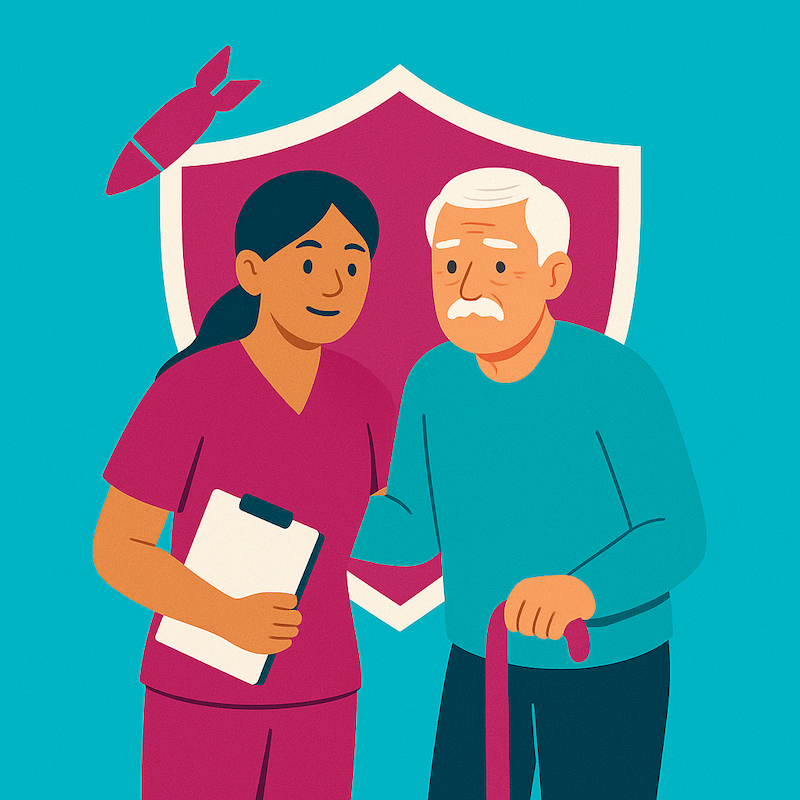How to Help Seniors Who Can’t Move Around Easily Stay Comfortable in the Heat
iSavta | 04.08.2025

When the weather gets hot during summer, many people can cool down by moving to a cooler place, changing clothes, or drinking cold water. But for seniors who cannot move around easily—especially those who are bedridden or use a wheelchair—dealing with heat can be much harder.
As a caregiver, you have an important role in helping them stay cool, fresh, and comfortable. Seniors who stay in bed most of the time or sit in a chair for long hours need extra care during warm weather.
Why Hot Weather Is Harder for Seniors Who Can’t Move Much
Seniors who can’t move on their own may not be able to adjust their clothes or tell you when they feel too hot. Some may have medical conditions that make it harder for their bodies to cool down naturally. Also, sitting or lying in one position for too long on mattresses or cushions can trap heat and cause skin problems.
They may also sweat more during the summer, but because of health issues or aging skin, this can lead to rashes, discomfort, or even infections.
Easy Ways to Keep Seniors Cool and Comfortable
1. Choose the Right Clothing
Dress them in light, loose-fitting clothes made of soft cotton or breathable fabric. Avoid thick or tight clothing, which can make them feel hotter. If they wear adult diapers, make sure their clothes are not too tight to help air move freely.
2. Keep the Room Cool
If there’s no air conditioner, use electric fans to help air circulate. Close windows and curtains during the hottest parts of the day (between 11:00 AM and 4:00 PM) and open them in the early morning or evening when it’s cooler.
Placing a wet towel in front of the fan can make the air feel cooler. But be careful not to make the room too cold, especially for seniors with thin or sensitive skin.
3. Use Cooling Items
You can use cooling gel pads or cold compresses under their neck, back, or legs. These can help reduce body heat for those who stay in bed or sit for long hours.
Even a simple wet towel placed on the forehead, arms, or neck can provide fast relief.
4. Clean the Skin Often
During summer, sweat can cause rashes or infections if the skin is not kept clean. Use soft, moist wipes (fragrance-free) to clean their body, especially under the arms, neck, back, groin area, and under the breasts.
For extra comfort, keep the wipes in the refrigerator for a gentle cooling effect. You can also use powder for sensitive skin to keep the skin dry—just don’t use too much.
5. Help Them Drink More Water
Older people may not feel thirsty even when their body needs water. Offer small sips of water often, or give fruits with high water content like watermelon or oranges.
If they have trouble holding a glass, use a straw or a special cup that’s easier for them to manage.
6. Change Their Position Often
If your senior employer stays in bed most of the time, help them change position every 2–3 hours. This helps prevent pressure sores and allows their body to release heat more easily.
For those in wheelchairs, gentle stretching or moving to a cooler chair with a different surface can also help.
Watch for Signs of Overheating
Always be on the lookout for these signs of heat problems:
-
Red or hot skin
-
Sweating too much or not at all
-
Weakness or confusion
-
Fast heartbeat
-
Sleepiness or dizziness
If you notice any of these, help your senior cool down right away and inform their family or doctor.
Your Care Can Make Summer Comfortable
For seniors who stay in bed or sit for long hours, summer can feel tiring or uncomfortable. But your daily care can help them feel safe and well.
By choosing the right clothes, keeping the room cool, cleaning their skin, and offering water regularly, you can protect your employer from the heat. These simple actions can prevent bigger problems and make a big difference in their comfort.











